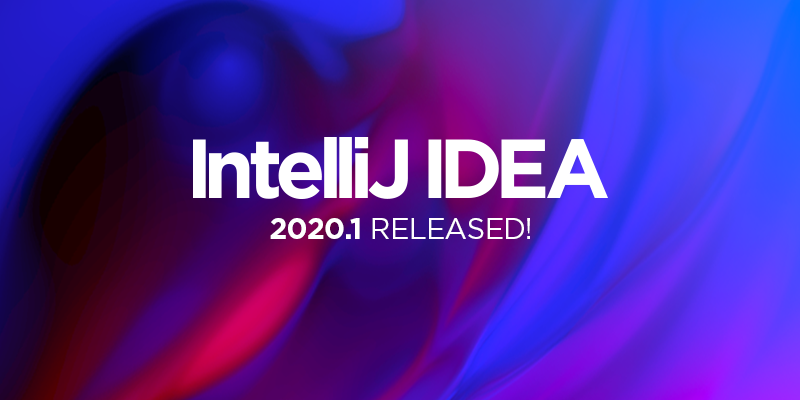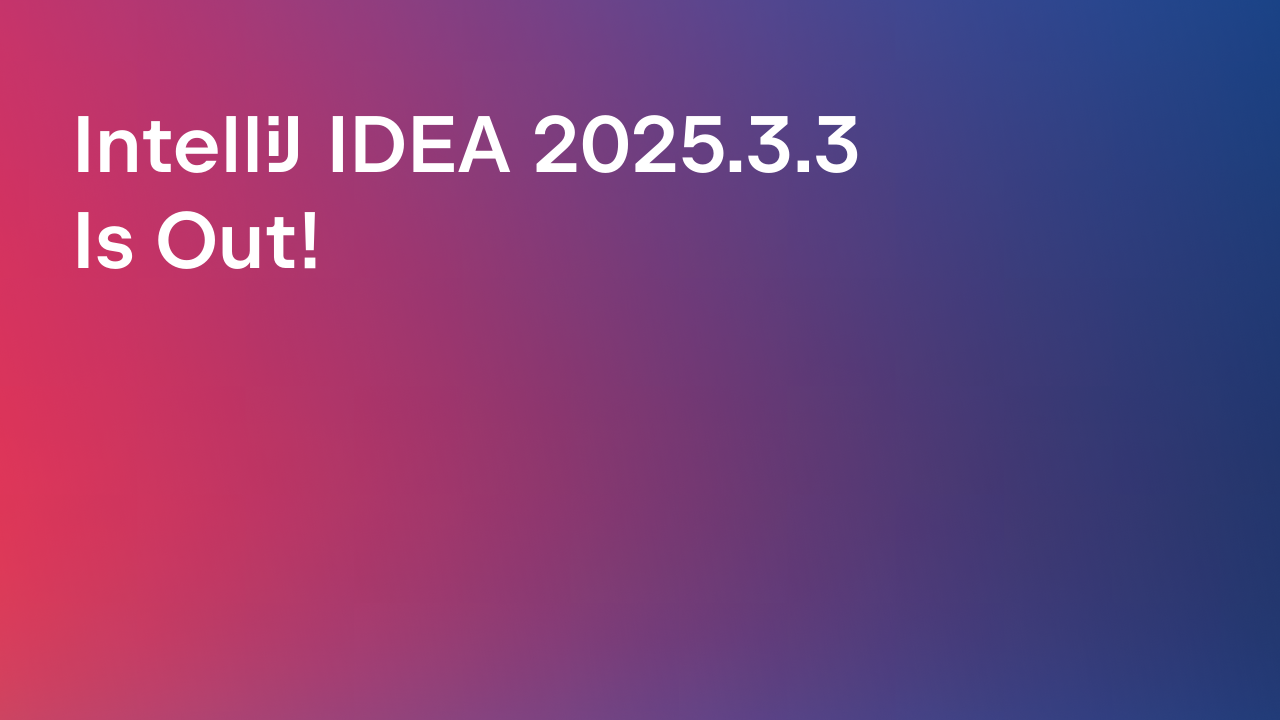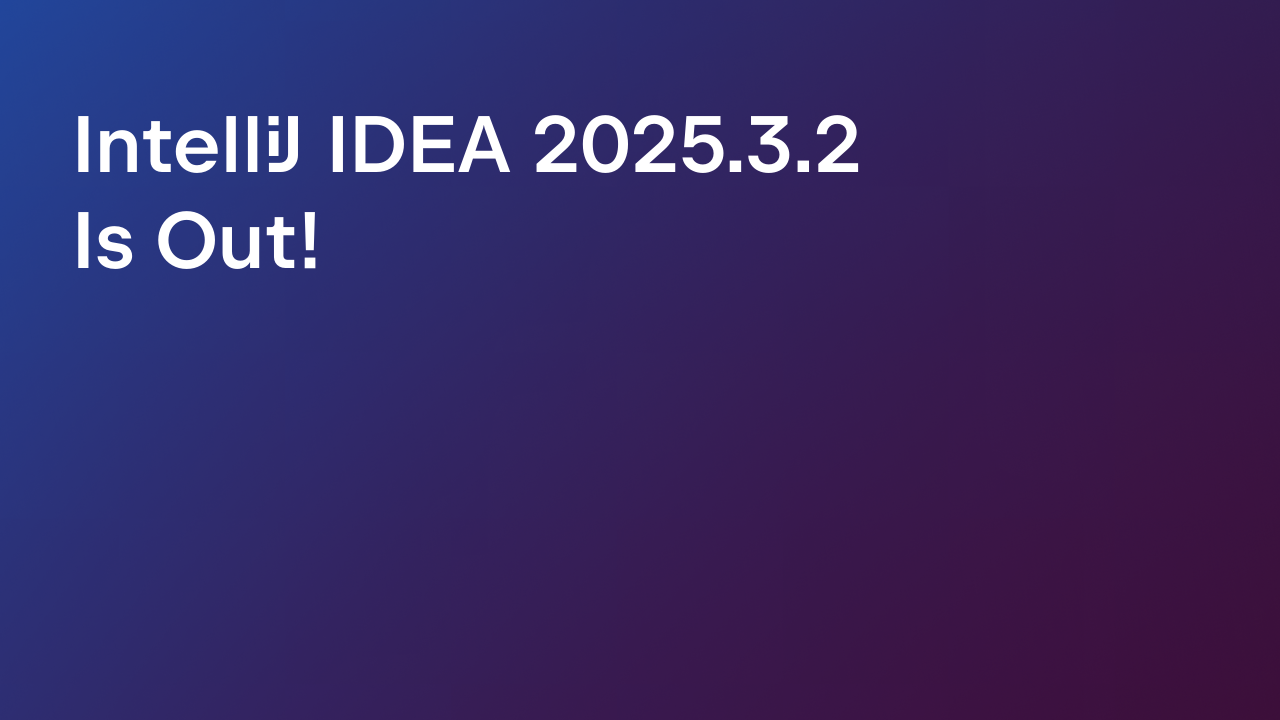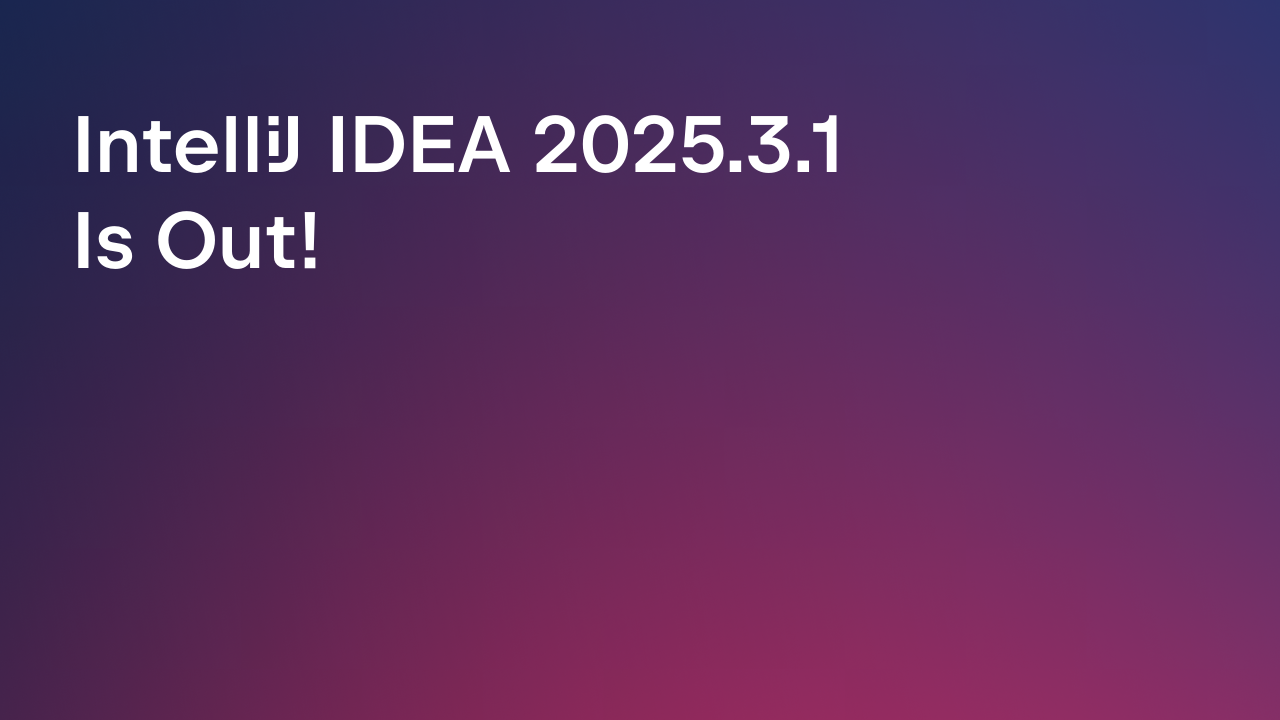IntelliJ IDEA
IntelliJ IDEA – the Leading IDE for Professional Development in Java and Kotlin
IntelliJ IDEA 2020.1: Java 14, dataflow analysis assistance in the debugger, LightEdit mode, and more!
IntelliJ IDEA 2020.1, the first major update this year, has just been released! This new version adds support for Java 14 and new features for a number of web and test frameworks. It also upgrades the debugger with dataflow analysis assistance, adds a new LightEdit mode, downloads and configures the JDK for you, and does so many more cool things!

If you’re looking to learn in depth about all the new features in the latest release, head straight to the What’s New in IntelliJ IDEA 2020.1 page on our website. It provides an overview of virtually all new features and enhancements, major and minor, and is easy to navigate with a table of contents.
If you are more of a visual learner and only interested in the release highlights, then check out this video overview of IntelliJ IDEA 2020.1 that we posted a couple of weeks ago:
Finally, if you’re here only for a quick update, these are the major changes in v2020.1 you need to know about:
Java
- IntelliJ IDEA 2020.1 adds support for Java 14 and its new features. This includes full code insight support for Records, as well as support for Pattern Matching for the instanceof operator.
- You can now download and set up a JDK build right from the IDE as you create and configure your project, or open an existing project that lacks the required Java version.
- There are new Java inspections to analyze date-formatting cases and search for additional redundant method calls. The IDE can also report unnecessary escaping characters in string literals and suggest eliminating them.
Editor
- Use the new LightEdit mode to make quick modifications to standalone files in a text-like editor, without creating or loading an entire project.
- Quickly rename and edit the parameters of a class or method with the newly added in-place Rename and Change Signature refactorings.
- The new Code Vision will show you the usages and implementations of Java symbols.
- The navigation bar now shows you methods in Java classes and interfaces.
- Zen mode combines Distraction Free Mode with Full Screen Mode, allowing you to eliminate any distractions and focus solely on your source code.
Debugger & Profiler
- IntelliJ IDEA 2020.1 adds Dataflow Analysis to the JVM debugger. It predicts code execution before the code is actually executed.
- The new version can open `.hprof` memory dump files that can help you identify memory leaks and find ways to optimize memory usage.
Version Control
- The new Commit tool window provides more space for the list of modified files and the diff, and it lets you add changes to a commit when they are ready, and compose a commit message iteratively.
- The reworked ‘Interactively Rebase from Here’ dialog features a graph showing which actions have been applied, displays commit details, and lets you see a diff so you can review or reset the changes as appropriate.
- The Branches popup now includes an explicit search field and a reworked Refresh button.
Appearance
- The recently introduced JetBrains Mono has become the default font in IntelliJ IDEA 2020.1.
- IntelliJ IDEA 2020.1 features IntelliJ Light – a new default light theme that is now unified across the different operating systems.
Frameworks and tools (Ultimate)
- The HTTP client can correctly autocomplete path variables and URL paths, and it can get you to the related endpoints right from the HTTP request files.
- Spring WebFlux: the IDE now works properly with the Rendering API, so code autocompletion and navigating to the related views, as well as other code insight features, are now available.
- IntelliJ IDEA 2020.1 Ultimate introduces initial support for Selenium, a popular framework for testing web applications, through the new Selenium UI Automation Testing plugin.
- IntelliJ IDEA 2020.1 comes with a full set of code insight features for JMS and Spring Messaging APIs for both Java and Kotlin applications.
- Micronaut support has been extended to add automatic completion for parameters in configuration files, as well as navigation and quick documentation.
- IntelliJ IDEA 2020.1 augments RxJava support by adding a number of useful inspections.
- You can now create new Quarkus and MicroProfile projects directly through the New Project wizard, which will walk you through the initial configuration.
- There are now injections for R2DBC, Vert.x SQL Clients, Apache Spark SQL, and Apache DB Utils, among others.
- IntelliJ IDEA 2020.1 is integrated with Swagger Codegen – a powerful tool for generating server stubs, API clients, and documentation that supports a vast range of programming languages.
- The new version also adds support for openapi/swagger specifications.
Docker & Kubernetes
- We have reworked our UI and removed the modal dialog to help you more easily pull images from a Docker registry.
- You can now update a Kubernetes cluster to match a state defined in your local files, by invoking the “Apply” command right from the editor gutter.
The new version also adds improvements for Scala, JavaScript, and other technologies. There are also many minor but neat features, such as split terminal sessions, quick type definitions, storing run configurations as files, and even more.
If any of these changes have piqued your interest, get the full story on the What’s New in IntelliJ IDEA 2020.1 webpage.
For even more details and all the tickets we’ve closed for 2020.1, check out the release notes.
We hope you enjoy the new IntelliJ IDEA 2020.1, and we are eager to hear your feedback!
Should you encounter any issues, please report them to our bug tracker.
To get the new IntelliJ IDEA 2020.1, simply check for updates in the IDE (IntelliJ IDEA | Check for Updates), use the Toolbox App, or download the new version directly from the website.
Happy Developing!
Subscribe to IntelliJ IDEA Blog updates







